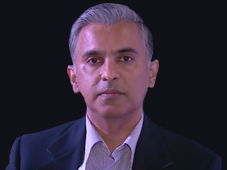Interviews
In-depth analysis of Industries and companies and how they manage complex and
demanding business environment.

AI is going to be the biggest disruption in the history of mankind. We are fast approaching the era of autonomous decision making where the machine will be increasingly making most decisions in our personal and professional lives.
If you look up the company’s website you will find a line on the word “manthan”. It is a metaphor for deep contemplation; churning facts to arrive at a conclusion. Artificial Intelligence is arguably the most disruptive force today and is also the technology with which Manthan Systems is powering its future. We managed to eke out some time from the CTO’s busy schedule and were privy to much deep contemplation indeed.

